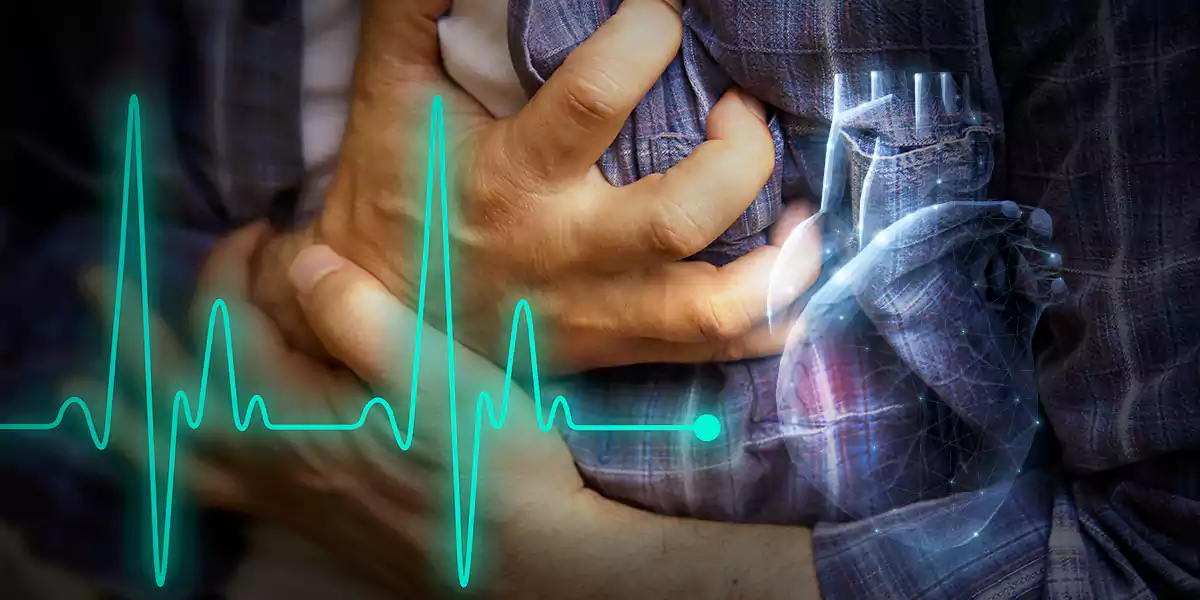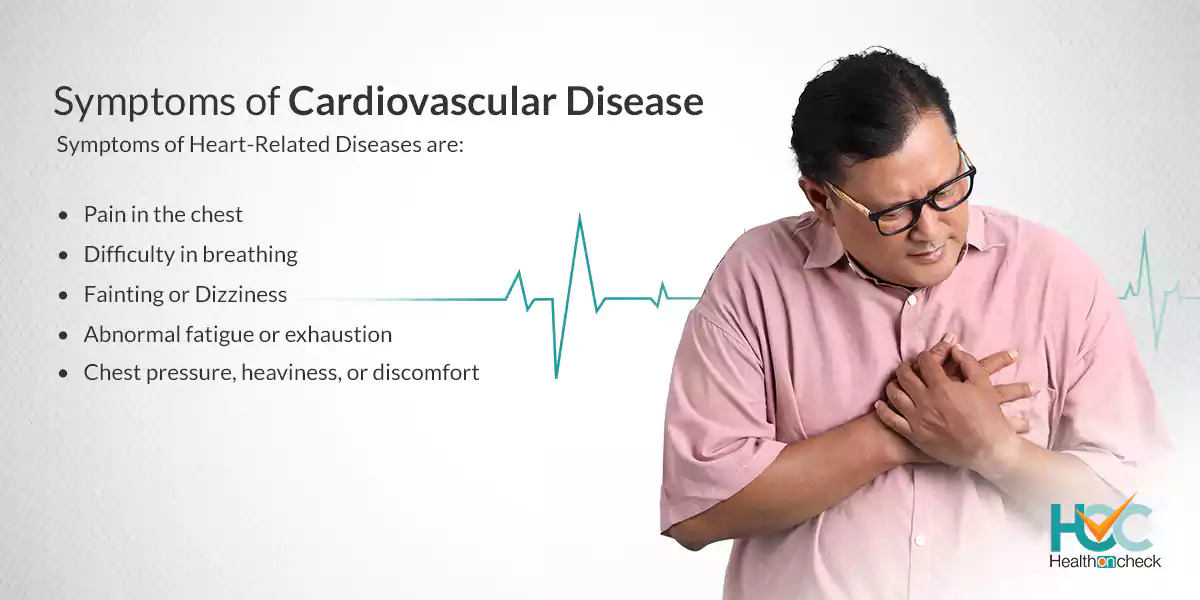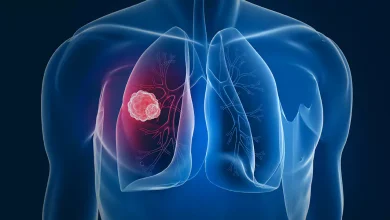All about Cardiovascular Disease

What is Cardiovascular Disease?
Cardiovascular disease is a broad, umbrella term used to describe the various types of diseases related to the heart and blood vessels. The cardiovascular also known as the circulatory system, supplies blood to the body and it includes the heart, arteries, veins, and capillaries. Any ailment affecting these parts of the body comes under the category of cardiovascular disease. Cardiovascular disease at present is the most common cause of death across the globe.
What are the Types of Cardiovascular Disease?
Cardiovascular disease includes various types of conditions affecting the circulatory system of your body that may give rise to various diseases. There are mainly four types of cardiovascular disease.
- Coronary Heart Disease: It is the most common type of cardiovascular disease that happens when the flow of oxygen-rich blood to the heart is either reduced or blocked. It puts the heart under an increased strain and can lead to ailments like heart attack, and heart failure.
- Stroke: Stroke means when the blood supply to the brain is cut off which may result in brain damage and possible death. Apart from the major stroke which can be lethal, there is a mini-stroke also known as transient ischemic attack (TIA) where the blood flow to the brain is disrupted temporally.
- Peripheral Arterial Disease: It is a type of cardiovascular disease where the blood flow to the limbs, precisely the legs is blocked. It can lead to diseases such as cramping leg pain that makes people very difficult to walk but gets better after taking rest, numbness or weakness in the legs, and ulcers on the feet and legs.
- Aortic Disease: Aortic disease happens when any ailment affects the aorta, the largest blood vessel of the body. The most common aortic disease is aortic aneurysm, where the aorta becomes gets weak and bulges outwards.
What are the Symptoms of Cardiovascular Disease?
There are numerous symptoms of cardiovascular disease and it depends on the type of cardiovascular disease one may be suffering from.

Symptoms of Heart-Related Diseases
- Pain in the chest
- Chest pressure, heaviness, or discomfort, also known as the “belt around the chest” or a “weight on the chest.”
- Difficulty in breathing
- Fainting or Dizziness
- Abnormal fatigue or exhaustion
Symptoms of Blockage in Various Parts of the Body
- Pain while walking
- Ulcers or leg sores that are not healing
- Various parts of the skin on the legs becoming red
- Legs Swelling
- Numbness in the limb or face
- Finding it difficult to talk, walk, and see
What are the Causes of Cardiovascular Disease?
The causes of cardiovascular disease depend on the type of disease one is suffering from. Various heart-related diseases occur because of problems with heart valves functioning. The heart consists of four valves which are the aortic, mitral, pulmonary, and tricuspid valves. Various things can damage the heart valves. The heart valves or one of them may become narrowed (stenosis), leaky (regurgitation or insufficiency), or closed improperly (prolapse). Apart from the internal factors, various outer factors may cause heart-related diseases. Internal factors like genetics, age, or other factors like lifestyle habits may lead to heart related diseases. Some unhealthy lifestyle habits such as eating food with saturated fats, refined carbohydrates, and salt, drinking too much alcohol, smoking, or taking too much stress may cause heart disease. Other medical conditions like high blood pressure, high cholesterol levels, diabetes, obesity, chronic kidney disease, etc also raise the risks of heart diseases.
Peripheral arterial disease occurs mostly because of the buildup of fatty, cholesterol-containing deposits (plaques) on artery walls which is known as atherosclerosis. It decreases blood flow through the arteries and affects the arteries throughout the body. Other minor causes of peripheral arterial disease include inflammation in blood vessels, arms or leg injury, and exposure to radiation, etc.
What are the Risk Factors Associated with Cardiovascular Disease?
There are many risk factors associated with cardiovascular disease and it can be divided into two parts, the first being modifiable risk factors which can be controlled and decreased by changing lifestyle such as high blood pressure, high low-density lipoprotein (LDL) cholesterol, diabetes, smoking, and secondhand smoke exposure, excessive drinking, obesity, unhealthy diet, and lack of physical activities.
The second is non-modifiable risk factors which are not in our hands and cannot be controlled such as age, genetics, sex, family history, and ethnicity.
How is Cardiovascular Disease Diagnosed?
If you feel the symptoms of any kind of cardiovascular disease then visit a doctor immediately who may take various tests to diagnose whether you are suffering from any kind of cardiovascular disease or not. Some of the common tests done to diagnose cardiovascular disease are
- Blood Test: Blood tests are done to check the level of cholesterol and blood sugar along with a few specific proteins. Blood test is also conducted to check the clotting of blood which is help to diagnose the problem you may be suffering from.
- Ankle Brachial Index (ABI): It is the process of comparing the blood pressure in your arms and ankles to diagnose peripheral artery disease.
- Electrocardiogram (EKG): It records the heart’s electrical activity that helps to diagnose if you have any heart related ailment.
- Ultrasound: The process of ultrasound uses sound waves to check the flow of blood in your body, especially the legs or the neck.
- Cardiac Computerized Tomography (CT): Commonly known as CT scan, it includes the procedure of creating a 3D image of your heart and blood vessels by using X-rays.
- Cardiac Magnetic Resonance Imaging (MRI): Magnets and radio waves are used to create highly detailed images of your heart and check if you have any issues in the heart.
- Stress Test: This test is done to study how physical activity affects your heart in a controlled setting through exercise or medications, and determine how your heart responds to it. This type of test may also involve EKGs and/or imaging tests.
What are the treatment options for Cardiovascular Disease?
The treatment of cardiovascular diseases is based on the type and symptoms of the disease. In recent times, the world of science has developed a lot, and treatments are available for almost all kinds of cardiovascular diseases. Here we have created a list of treatment options for cardiovascular disease.
- Change in Lifestyle: If you are diagnosed with any type of cardiovascular disease then the doctor will always advise you to change your lifestyle and opt for healthier things that will help in controlling and curbing the disease you are suffering from. In most types of cardiovascular disease, you shall have a healthy diet, proper physical activities regularly, and quit harmful habits like smoking and drinking if you have any.
- Medications: Your doctor will give you medicines according to the type of disease you have.
- Surgery: Though not very common but surgery is needed in a few cases of cardiovascular disease such as stents in your heart or leg arteries, marginally invasive heart surgery, open-heart surgery, cardioversion, or ablations.
- Cardiac Rehabilitation: Your doctor or physician may create a chart of various kinds of exercises you need to do regularly to keep your disease controlled.
- Regular Check Up: Once you cross a certain age or if you have or had any kind of cardiovascular disease, it’s very important that you go for regular checkups.
What are the Complications of Cardiovascular Disease?
The degree of cardiovascular varies from very mild to life-threatening. Since cardiovascular disease is a broad term for various diseases related to your heart and blood vessels, we have divided the complications into two parts:
Complications related to Heart Diseases
- Heart Failure: The most common complication if you are suffering from any heart-related disease is heart failure which many times can be life-threatening.
- Heart Attack: Another major complication of heart-related diseases is heart attack which occurs when there is blood clotting and blocks the blood vessels that allow blood to go to the heart.
- Stroke: A stroke happens when the supply of blood to your brain is blocked. Strokes are lethal as brain tissues begin to die minutes after the stroke. There are ‘mini strokes’ as well when the supply of blood to the brain is blocked temporarily. Immediate medical treatment is needed in both cases.
- Sudden Cardiac Arrest: Sudden cardiac arrest happens when there is a problem in the heart’s electrical system which may lead to sudden loss of heart function, consciousness and breathing.
Complications related to Peripheral Vascular Disease
- Loss of Limb also known as amputation
- The slow healing process of wounds and other skin-related problems
- Difficulty in walking because of pain and discomfort
- Feeling pain which can sometimes be quite severe in the affected area
- High chances of stroke
Living with Cardiovascular Disease
Since the degree of severity varies according to the cardiovascular disease, living with it also varies but mostly you need to have medications and checkups regularly. A change in eating habits is necessary which includes avoiding foods that may deepen the problem, regular exercise, and quitting drinking and smoking, are important factors for living with cardiovascular disease.
Whom to Consult?
If you notice symptoms of any cardiovascular disease then the first you need to do is consult a cardiologist who will advise you for further tests and treatments to diagnose and treat the condition.




